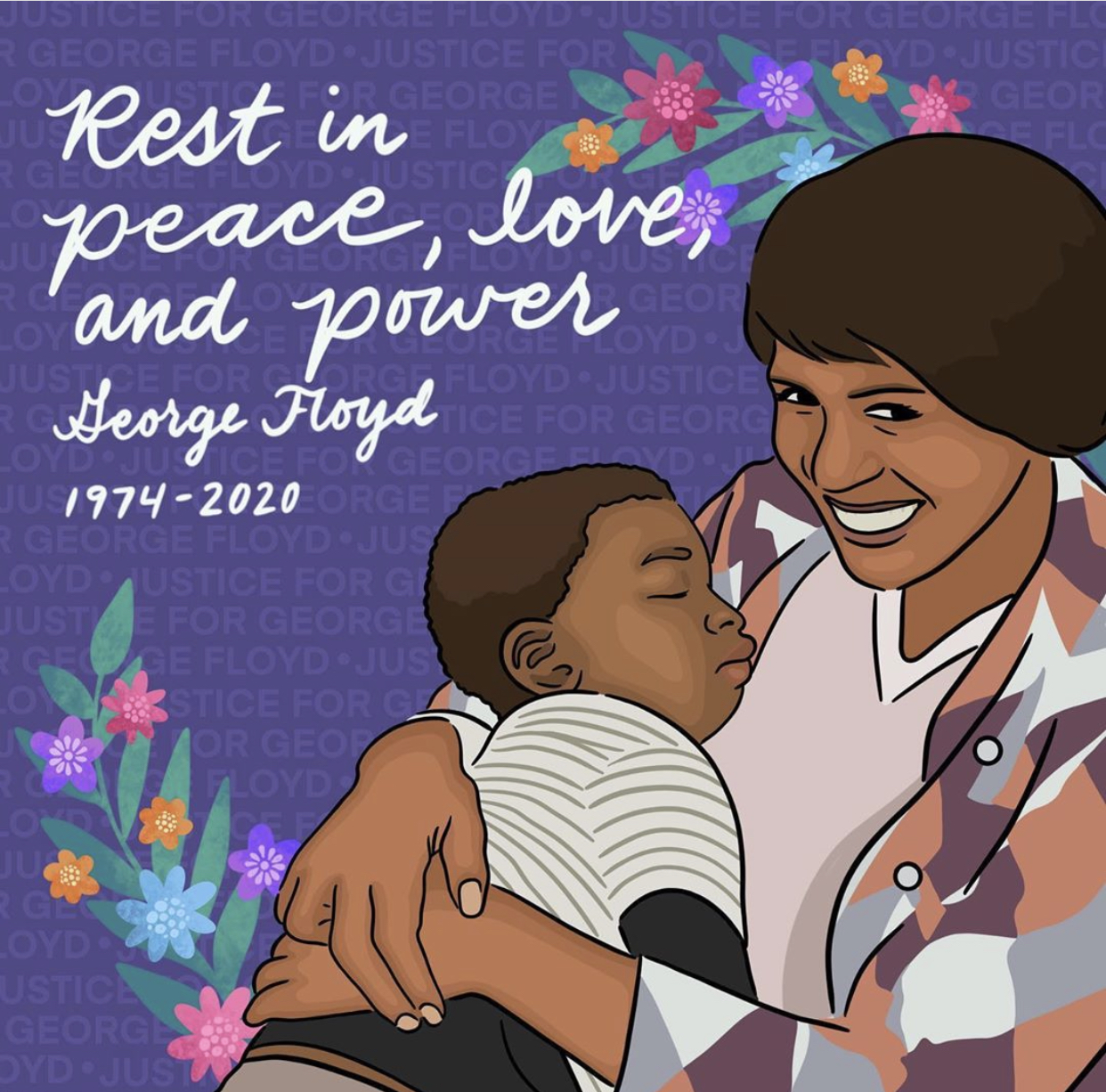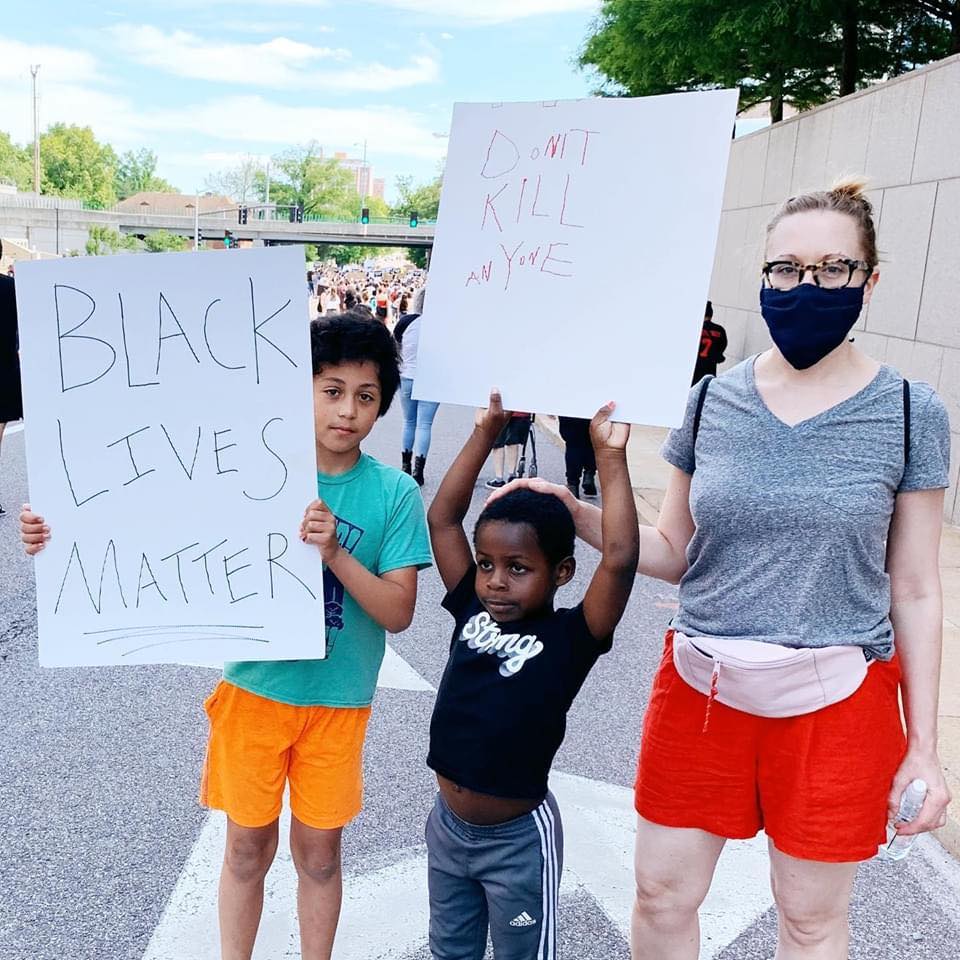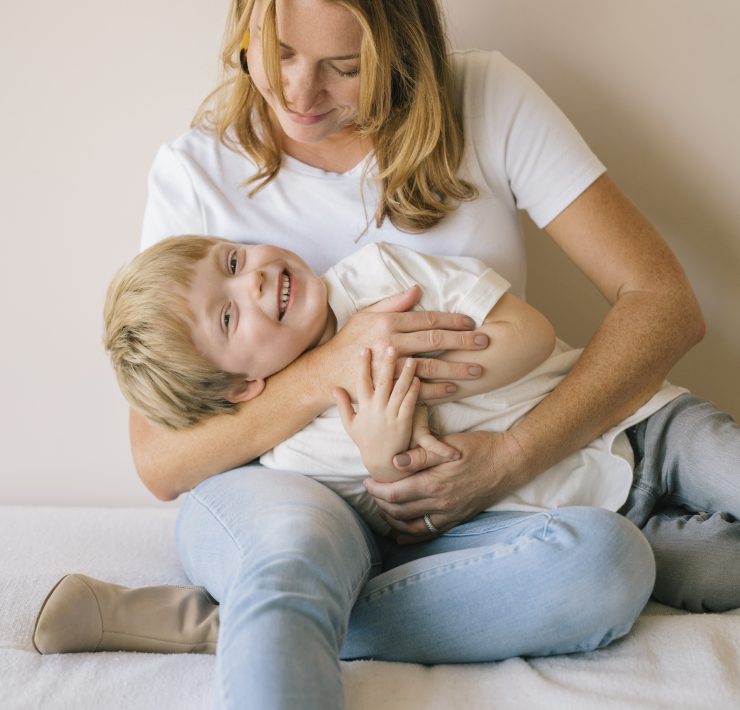
I am white. I am privileged. I have a responsibility to talk to other white privileged women about how we can be allies and raise actively anti-racist children.
As a lily white mommy blogger, I hesitated to post about George Floyd’s death. The world doesn’t need another white lady telling other white ladies that the way to address racism at home is to buy a box of skin tone Crayolas for the kids. (Though you should buy them, obviously, and no, that’s not an affiliate link.) What the world needs right now is for white mothers to talk to each other about how to raise actively anti-racist children.
On Saturday, my five-year-old saw news footage of the protests in Los Angeles and began asking questions.
“Mommy, what are those people doing?”
I froze. I’d been trying all week to find the right time to explain to him what was happening. But there is no right time to explain racism. There is only now. We must explain it now.
I locked eyes with my husband — where do we even begin?
Finding the words to explain to our children what is happening in our country right now is nearly impossible, which is one of the reasons so many parents say nothing at all. Parents of white children, that is. Parents of black children are forced to have these conversations early and often because they are a matter of life and death. Continuing to avoid conversations about race with your white children is simply not acceptable. And if you are worried that they’re too young to understand, I promise you they’re not. Just ask my friend’s five-year-old son Hank who wrote his own sign for last Saturday’s protest: Don’t kill anyone.

I am white. I am privileged. I have a responsibility to talk to other white privileged women about how we can be allies and raise actively anti-racist children. I have no words to explain what this is like for the black community, nor is mine is the voice you should be reading to better understand that. But I am a screenwriter, and I have plenty of words to share when it comes to how to structure a conversation. It’s what I was paid to do until I quit my job to sell multicultural crayons on this website (still not an affiliate link).
Below is the conversation I had with my five-year-old about George Floyd’s death. I share it in hopes of encouraging you to speak to your white child about racism.
SON
Mommy, what are those people doing?
MOMMY
They’re protesting.
SON
What’s protesting?
MOMMY
(here we go)
Protesting is like a parade. But it’s sad. Or mad. It’s like a sad parade or a mad parade.
SON
Why are they mad?
MOMMY
They’re mad because a man died, and he died in a very bad way, and that made them very upset.
SON
How did he die?
MOMMY
Do you remember how I told you that some people are mean to other people because their skin is black or brown?
SON
Yes.
MOMMY
The man who died had black skin. The people who killed him had white skin, like us. Sometimes white people are very mean to black people, just because they have black skin. And that is not okay. That’s why the people on TV are protesting. Because they are angry and sad that a white man killed a black man because of the color of his skin. His name was George Floyd.
SON
(Excitedly)
Just like George Beard and Harold Hutchins!
MOMMY
Yes. Just like in Captain Underpants.
SON
How did they kill the black man?
MOMMY
The white man and his friends were very mean to him. They chased him, and they bullied him. Do you know what a bully is?
SON
Yes.
MOMMY
They bullied him and they hurt his neck, and he died.
SON
How did they hurt his neck?
MOMMY
One of the men put his knee on George’s neck, and George couldn’t breathe.
SON
Oh.
MOMMY
It’s not okay to be mean to someone because they have a different color skin than you. And it’s not okay for other people to do it either. What would you say if you saw someone being mean to a person with black skin or brown skin?
SON
I would tell them to stop it.
MOMMY
Yes. And if they didn’t stop, what would you do?
SON
I would fight them.
MOMMY
I don’t want you to fight them. I want you to find me or your teacher or another adult and tell them what’s happening.
SON
Okay.
MOMMY
What should you do if you can’t find an adult?
SON
I don’t know.
MOMMY
You stand up for your friend. Do you know what that means?
SON
What?
MOMMY
That means you stand next to the person they are being mean to and you tell them, ”I will be your friend, and I will stand here with you, and I am sorry that they are being mean to you. It’s not okay.”
SON
Can I say a bad word and tell them that they’re stupid?
MOMMY
No. I don’t want you to say a bad word. I want you to stand up for your friend so that he is not alone. And I want you to tell the bullies to stop. That’s what the people at the protest are doing. They are telling the bullies to stop.
SON
Why did they have fireworks at the parade?
MOMMY
Sometimes when people have a sad parade or a mad parade, they hold signs that say words about why they are mad. But sometimes they are so, so mad. Do you know how when you are mad at your video game, you hit the desk with your fist or you slam down your controller? Sometimes when grownups get mad at the parade, they throw rocks or firecrackers. It is not okay for you to throw firecrackers, ever. Or rocks. I don’t want you to ever do that, okay?
SON
Okay.
MOMMY
But the people at the protest are very mad because their friend was killed by mean people. And they are so sad. And that’s what’s happening on TV. Do you understand now?
SON
Yes.
MOMMY
What should you do if someone is being mean to a person because they are black?
SON
(Doing his best impression of Mommy)
“Not in this house!”
MOMMY
Exactly.
I chose my words and explanations based on what I knew would resonate with my five-year-old son. Those explanations will change and become more detailed as he grows. This is not meant to be a one-time conversation. Raising anti-racist children takes constant effort. Constant conversation. Talk early, and talk often. These words are merely a place to start.
Beautiful artwork by Gracie Lee: @gracieleeart.
Jessica Butler is the co-founder of Raise, stepmother of two, and adoptive mother of one. Prior to Raise, she was a writer on USA’s "In Plain Sight" and TNT’s "The Last Ship." She and her husband, writer/producer Warren Bell, co-created the Nick at Nite series "Instant Mom," based on her life as a stepmother. She lives in Los Angeles with her husband and six-year-old son, Levon.


